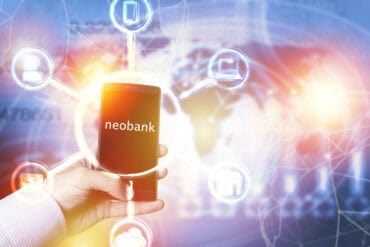
In this week’s real-time analytics news: Google and many of its partners made announcements at the Google Cloud Next 2025 conference.
Keeping pace with news and developments in the real-time analytics and AI market can be a daunting task. Fortunately, we have you covered with a summary of the items our staff comes across each week. And if you prefer it in your inbox, sign up here!
The Google Cloud Next 2025 conference saw a slew of company and partner announcements aimed at accelerating AI, providing easier access to data, and more. Here is the news from the conference:
Google introduced Ironwood, its seventh-generation Tensor Processing Unit (TPU). Ironwood is the first TPU designed specifically for inference. Ironwood also marks a broader shift in AI infrastructure development—from responsive models that deliver real-time information for human interpretation to AI systems that proactively generate insights and interpret data. This shift, which Google describes as the “age of inference,” will allow AI agents to retrieve and generate data collaboratively to deliver actionable insights and answers.
NVIDIA announced it is collaborating with Google Cloud to bring agentic AI to enterprises seeking to locally harness the Google Gemini family of AI models using the NVIDIA Blackwell HGX and DGX platforms and NVIDIA Confidential Computing for data safety. With the NVIDIA Blackwell platform on Google Distributed Cloud, on-premises data centers can stay aligned with regulatory requirements and data sovereignty laws by locking down access to sensitive information. NVIDIA Confidential Computing also secures sensitive code in the Gemini models from unauthorized access and data leaks.
AMD announced the new Google Cloud C4D and H4D virtual machines (VMs) are powered by 5th Gen AMD EPYC processors. The latest additions to Google Cloud’s general-purpose and HPC-optimized VMs deliver the performance, scalability, and efficiency needed for demanding cloud workloads for everything from data analytics and web serving to high-performance computing (HPC) and AI.
dbt Labs announced that dbt Cloud is now deployable on Google Cloud. This empowers organizations with the flexibility to choose how they architect their data and AI environments while centralizing spend. In addition, dbt Cloud is now available via Google Cloud Marketplace, giving customers the freedom to access the secure, scalable data platform via a new channel.
DataChat announced that it has successfully earned the Google Cloud Ready – BigQuery designation, giving customers confidence that DataChat products can work with Google Cloud’s BigQuery, a unified, AI-ready data analytics platform. Specifically, DataChat connects directly to a customer’s BigQuery database, allowing the customer to analyze massive datasets and get quick answers with no SQL required.
Datadog announced expanded monitoring capabilities for Google Cloud BigQuery. Datadog’s expanded BigQuery monitoring capabilities, now in preview, help teams view BigQuery usage by user and project to identify those incurring the most spend, pinpoint the long-running queries in those segments to optimize, and detect data quality issues.
DDN announced it is working with Google Cloud to transform AI-powered infrastructure with Google Cloud Managed Lustre based on DDN’s EXASCaler. Accessible for Google Cloud customers, this solution features a persistent parallel file system that delivers speed, scalability, and efficiency for enterprises and startups building AI, GenAI, and HPC applications.
Informatica announced the expansion of its Intelligent Data Management Cloud (IDMC) platform services on Google Cloud. The enhanced capabilities include support for the Databricks Data Intelligence Platform, API Center, and Cloud Data Access Management (CDAM) services running natively on Google Cloud.
PuppyGraphannounced that it has achieved the Google Cloud Ready – BigQuery and Google Cloud Ready – AlloyDB designations. By earning these designations, PuppyGraph has demonstrated that it can connect seamlessly with BigQuery and AlloyDB. Additionally, PuppyGraph is the first graph query engine to offer native graph analytics directly on both BigQuery and AlloyDB, enabling teams to explore complex relationships without the overhead of data duplication or ETL.
Sutherland announced an expanded partnership with Google Cloud to help clients accelerate enterprise-wide adoption of Generative AI and deliver immediate, measurable business value. Building on years of successful collaboration, this next phase of the partnership focuses on agentic AI and unites Google Cloud’s Gemini models, Vertex AI, and Customer Engagement Suite with Sutherland’s deep expertise in applied AI.
Real-time analytics news in brief
Salesforce introduced the CIO Agentic Maturity Model— a framework designed to help CIOs assess and advance their use of AI agents. The model focuses on the key stages of AI adoption, including:
- Level 0: Fixed Rules & Repetitive Tasks – Automate tasks with predefined rules (e.g., chatbots, co-pilots).
- Level 1: Information Retrieval Agents – Recommend actions and retrieve information.
- Level 2: Simple Orchestration, Single Domain – Autonomously orchestrate low-complexity tasks in siloed environments.
- Level 3: Complex Orchestration, Multiple Domains – Autonomously orchestrate multiple workflows across different domains.
- Level 4: Multi-Agent Orchestration – Enable interoperable agents across different systems.
In other Salesforce news, the company announced Agentforce for Field Service, a solution that allows large and small businesses across critical sectors to support technicians, mobile workers, and customers. Agentforce for Field Service automates scheduling, paperwork, and reporting — freeing skilled workers to focus on repairs, troubleshooting, and building customer relationships. Specifically, the solution uses pre-built topics and actions, plus unified data from internal and external enterprise sources, to operate autonomously in any field service workflow to provide workers and customers with intelligent, data-grounded responses.
Aerospike introduced Aerospike Graph Service (AGS) 2.5.0, which supports strong consistency (SC) in graph workloads, enabling guaranteed atomicity and isolation for real-time graph updates. Specifically, AGS 2.5.0 addresses common issues with transactional isolation for mutation queries. Backed by the new Aerospike Database 8.0, the solution provides an engine for delivering accurate, scalable, and always-on graph solutions.
AI One emerged from stealth to announce its AI One platform, which eliminated the need for data migrations by seamlessly integrating with existing systems to deliver immediate business value through knowledge-driven workflows and intelligent automation. AI One also introduces AI Shoring – a model that replaces traditional offshoring with intelligent automation. AI Shoring leverages AI-driven principles to automate and manage critical enterprise processes, significantly reducing operational complexity and costs while increasing control and efficiency.
Amazon Web Services (AWS) announced three key updates to Amazon Bedrock Guardrails Launch Moment. The updates are in line with AWS’s commitment to responsible AI and enhancing customers’ ability to build safe and compliant gen AI applications at scale. Key updates include new guardrails policy enhancements, new guardrails feature enhancements (e.g., IAM policy-based enforcement and directional guardrails application),
boost.ai announced the launch of Test Studio, a built-in studio to test and validate AI agent performance before enterprises deploy them in customer-facing applications. Expanding beyond boost.ai’s existing testing capabilities, Test Studio enables rigorous, scalable testing of predefined, generative, or hybrid conversation flows, helping businesses mitigate risk and ensure AI agent accuracy with confidence.
Camunda announced new agentic orchestration capabilities to help organizations model, deploy, and manage AI agents seamlessly into their end-to-end processes. The new agentic process orchestration capabilities provide the control and transparency needed for compliance, while harnessing AI-driven decision making to enhance automation, optimize operations, and scale business processes efficiently.
Cloudflare announced several new offerings to accelerate the development of AI agents. Cloudflare now enables developers to easily build and deploy powerful AI agents with the remote Model Context Protocol (MCP) server, generally available access to durable Workflows, and a free tier for Durable Objects. These offerings enable developers to build agents in minutes rather than months, simply, affordably, and at scale.
Dremio announced the availability of its latest release, marking the next generation of Dremio with intelligence capabilities that help organizations accelerate AI and analytics projects and reduce costs. The new Autonomous Reflections, Iceberg Clustering, AI-enabled Semantic Search, and enhancements to the Enterprise Catalog eliminate manual performance tuning and simplify data discovery.
Experian launched a suite of major new enhancements to its data quality and governance platform, Aperture Data Studio. The new version of Aperture Data Studio significantly enhances the existing platform, making it easier than ever for businesses to understand, manage, control, and improve their data efficiently.
IBM announced the IBM z17, the next generation of the company’s mainframe, fully engineered with AI capabilities across hardware, software, and systems operations. Powered by the new IBM Telum II processor, IBM z17 expands the system’s capabilities beyond transactional AI capabilities to enable new workloads.
Immuta announced enhancements to its Data Marketplace solution to help organizations that are increasingly focusing on data-driven decision making and artificial intelligence address the increase in volume of data access requests while minimizing data risk. Upcoming new features such as time-bound approvals, dynamic domain assignments, and prevention policies modernize data access workflows – accelerating provisioning and helping data teams keep up with rising request volumes.
Netwrix launched a free open-source Model Context Protocol (MCP) server integration for Netwrix Access Analyzer, enabling its customers to rapidly gain deep data security insights by connecting AI assistants to query data collected by the solution. With this integration, security teams can ask natural-language questions and get instant answers about who has access to what data, sensitive data exposure, stale accounts, and other risk indicators—without logging into dashboards or writing a single query.
Nextdata launched Nextdata OS, a unified platform for building and operating autonomous data products. Autonomous data products simplify and streamline data management for AI agents, analytics, and applications by encapsulating complexity and standardizing and automating data product management across heterogeneous data stacks in complex organizations. The product lets business teams self-serve data products – creation, discovery, and management – without central bottlenecks.
Octopus Deploy announced Kubernetes Live Object Status, a new feature that provides real-time visibility into the health and configuration of your applications running on Kubernetes. The solution provides teams with an always-on window into their applications, making it easier to detect issues, validate configuration health, and accelerate troubleshooting. Additionally, Kubernetes Live Object Status helps platform engineers by fully automating Continuous Deliver. It also helps developers by offering a self-serve platform upon which to conduct their work,
Plotly announced the release of Dash Enterprise (DE) 5.7, a significant update to the company’s platform used for building interactive data applications and data visualization dashboards. The solution empowers data scientists and data analysts to build interactive analytical applications using Python, eliminating the need for extensive front-end development skills and significantly reducing development time. The latest enhancements improve the platform’s AI-powered development capabilities, strengthen enterprise security, and improve user experience.
Qumulo announced the launch of Qumulo NeuralCache, a predictive caching solution designed to supercharge data performance for AI-driven enterprise applications and critical line-of-business workloads. Integrated into Qumulo’s Cloud Data Fabric, the technology leverages an ensemble of AI and machine learning models to dynamically optimize read/write caching, delivering unparalleled efficiency and scalability across both cloud and on-premises environments.
Redpanda announced the general availability of Apache Iceberg Topics, which enables organizations to query streaming data as Iceberg tables without having to create ETL/ELT pipelines. Redpanda offers this functionality in a “Bring Your Own Cloud” (BYOC) environment and for all three major cloud providers – AWS, GCP, and Azure.
Snowflake announced that it is bringing its core capabilities to Apache Iceberg tables, empowering organizations to activate data faster with zero data movement and open interoperability. As a result, Snowflake customers can now seamlessly accelerate their open lakehouse strategies, unlocking data access and analysis across open and managed environments in order to build, scale, and share advanced insights and AI-powered apps faster.
Yugabyte announced the first of its next-generation agentic AI apps, Performance Advisor for YugabyteDB Aeon, its software-as-a-service (SaaS) offering. Yugabyte also announced an extensible indexing framework designed to support the seamless integration of state-of-the-art vector indexing libraries and algorithms, augmenting the capabilities offered by pgvector.
Partnerships, collaborations, and more
The Allen Institute for AI (Ai2) announced OLMoTrace, a feature that enables organizations to trace the outputs of language models back to their multi-trillion-token training data in real time. This level of traceability helps users understand hallucinations and fact-check model responses, supports more effective model debugging, and provides the data traces required for AI governance, auditing, and regulation.
Honeycomb announced the acquisition of Grit, an open-source query system and AI agent, to help customers instrument complex software systems for end-to-end observability. The company will combine Grit’s codebase knowledge with Honeycomb’s observability data to build better software. It will leverage Grit’s open-source query system and AI agent to programmatically search and modify codebases.
IBM announced it has acquired Hakkoda, a global data and AI consultancy. Hakkoda brings a strong portfolio of generative AI-powered assets that can speed up data modernization projects. The acquisition will expand IBM Consulting’s data transformation services portfolio, adding specialized data platform expertise to help clients get their data ready to fuel AI-powered business operations.
If your company has real-time analytics news, send your announcements to ssalamone@rtinsights.com.
In case you missed it, here are our most recent previous weekly real-time analytics news roundups:
- Real-time Analytics News for the Week Ending April 5
- Real-time Analytics News for the Week Ending March 29
- Real-time Analytics News for the Week Ending March 22
- Real-time Analytics News for the Week Ending March 15
- Real-time Analytics News for the Week Ending March 8
- Real-time Analytics News for the Week Ending March 1
- Real-time Analytics News for the Week Ending February 22
- Real-time Analytics News for the Week Ending February 15
- Real-time Analytics News for the Week Ending February 8
- Real-time Analytics News for the Week Ending February 1





























